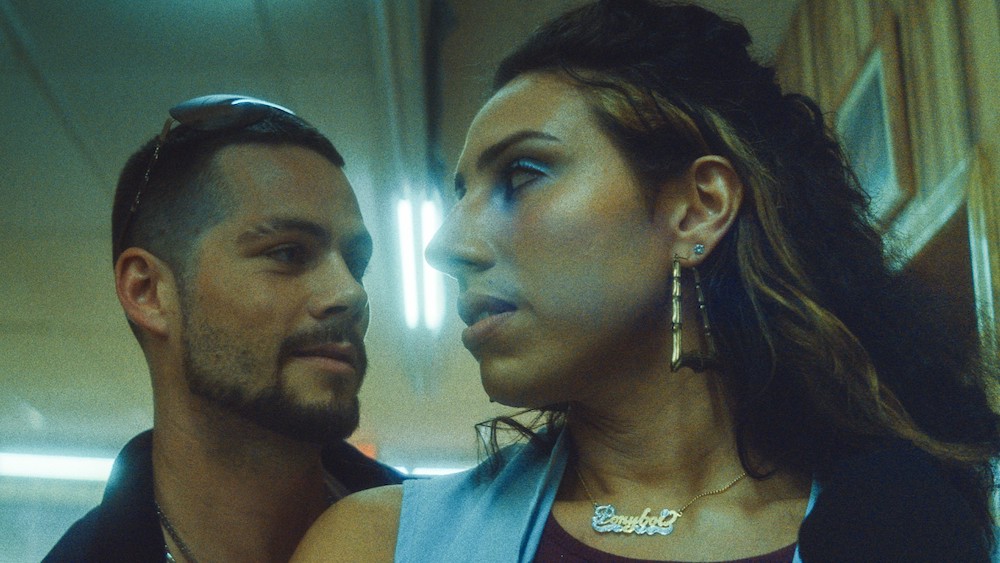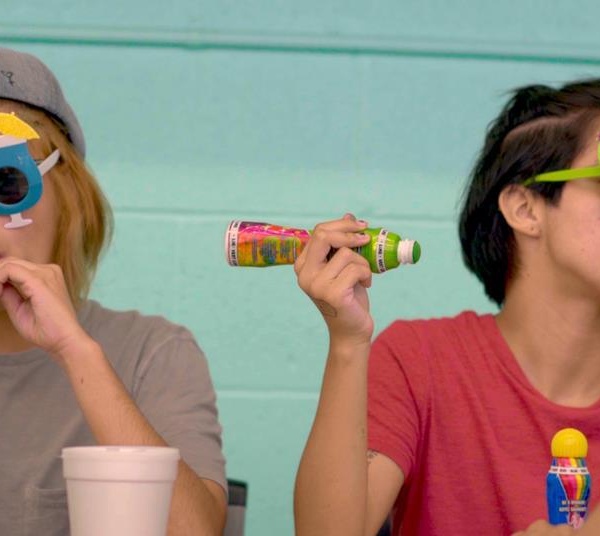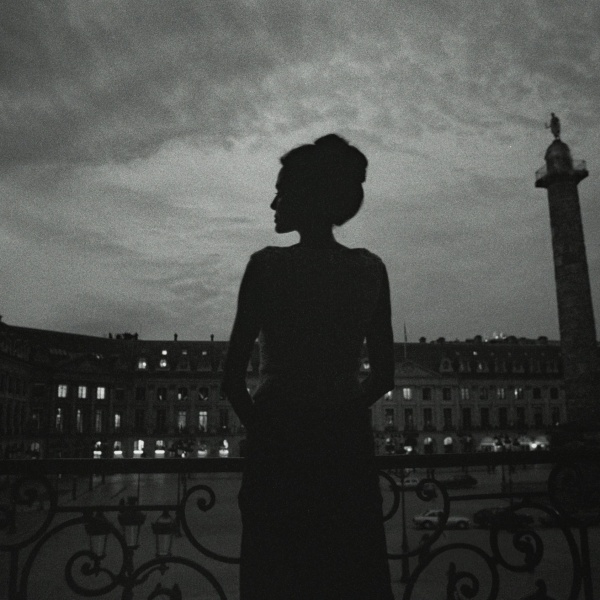Bathed in the soft glow of neon lights, “Ponyboi” reminds us that the point of view from which a story is told can drastically alter the outcome, even if founded on familiar tropes The second feature from Colombian-born director Esteban Arango (Sundance 2020’s “Blast Beat”) is actor and screenwriter River Gallo’s self-conceived star-making project expanded from a 2019 short film of the same title that Gallo also starred in and co-directed themselves. Grounded on Gallo’s Intersex identity, the unapologetic crime saga with flourishes of comedy and romance often comes across as excitingly undefinable.
Few sights can place some of us back in the 2000s with more immediacy than a bedazzled Motorola Razr flip phone, an emblem of Millennial youth. Holding precisely one of those is how we first see Ponyboi (Gallo) in the daylight as he enters Fluff n’ Stuff, a New Jersey laundromat where he is employed both as a clerk and drug-pushing sex worker. A Latinx Intersex person who defied his parents’ desire for him to adopt traditionally masculine traits, Ponyboi is at once hardened by the experience of being expelled from home at a young age and a hopeless romantic seeking tenderness in a world that fetishizes his body.
Sleazy pimp, drug dealer, and wannabe rapper Vinny (Dylan O’Brien) runs the criminal operation while two-timing (or even three-timing) his pregnant girlfriend Angel (Victoria Pedretti), Ponyboi’s best friend. O’Brien, best known from his “Teen Wolf” days, commits to the role of loser gangster with delusions of grandeur with convincing if unfounded swagger. It’s the type of out-of-the-blue performance that can alter how audiences perceive an actor, as far as rage and ability to transform goes, and shift their career trajectory positively. On this particular night, Valentine’s Day, Vinny instructs Ponyboi to sell a new kind of crack (dubiously manufactured even for crack) to one of their mobster clients.
Like a vision from Ponyboi’s retro Americana dreams, Bruce (Murray Bartlett), a ruggedly bearded yet gentle cowboy, shows up at the laundromat on his way to Las Vegas, hat and all, and makes Ponyboi swoon with his mere presence. Coyly, Ponyboi flirts with the handsome fellow, who seems just as interested. A brief, unassumingly magical moment in this exchange, when the two strangers sing a few verses of Bruce Springsteen “I’m on Fire,” captures their cautious attraction: not lust-fueled but still sexy. The spell of what could be between them is broken when a sudden crack-related death forces Ponyboi to run away before Vinny finds him. Violent shenanigans involving a local mob family ensue.
How cinematographer Ed Wu’s dreamy lighting and dynamic camerawork embellish the film can’t be overstated. There’s a marked visual distinction between Ponyboi’s troubled reality and the moments with Bruce. The opening title sequence, for example, showing Ponyboi walking the streets of Jersey in the early morning hours, seems ripped from a gritty, stylized ’70s flick. Brief flashbacks, presented as blurry flashes of consciousness, take us to the character’s childhood with his now-ill father who nicknamed him Ponyboi.
Before skipping town, Ponyboi has to stock up on the hormone injections (not the one most people would assume based on his gender expression) that he buys clandestinely from a local pharmacy. That instance reads simultaneously as befitting the type of tale where a character must run away from gun-wielding villains, while still feeling uniquely written to serve this Intersex protagonist. That’s where “Ponyboi” largely succeeds, even though a few beats, especially in regard to the criminal aspects of the tale, unfold in an expected fashion
Arango deftly interprets Gallo’s script bridging the melange of ideas in ways that function to draw a touching portrait of an individual with an abysmally underrepresented gender identity while preserving a darkly comedic tone and making it visually idiosyncratic.
“I was born a little different,” Ponyboi later tells Bruce in a vulnerable conversation as they sit in an old-school diner, by way of explaining why constant visits to the doctor were inescapable growing up. The child of Salvadoran immigrants, Ponyboi never felt comfortable in his own skin. Now, on the road away from Jersey, he has a chance to define himself on his own terms, as suggested by emphatic rival Charlie (Indya Moore in a scene-stealing supporting part).
Through some of the screenplay’s slight formulaic stumbles, it’s Gallo’s charmingly fierce performance that anchors all the loose pieces. They communicate Ponyboi’s fury, fear, and fated fabulousness with the intentionality and first-hand connection of an artist who has been waiting their entire life to tell this story exactly as fearlessly as this movie does.
Grade: B
“Poniboi” premiered at the 2024 Sundance Film Festival. It is currently seeking distribution.



